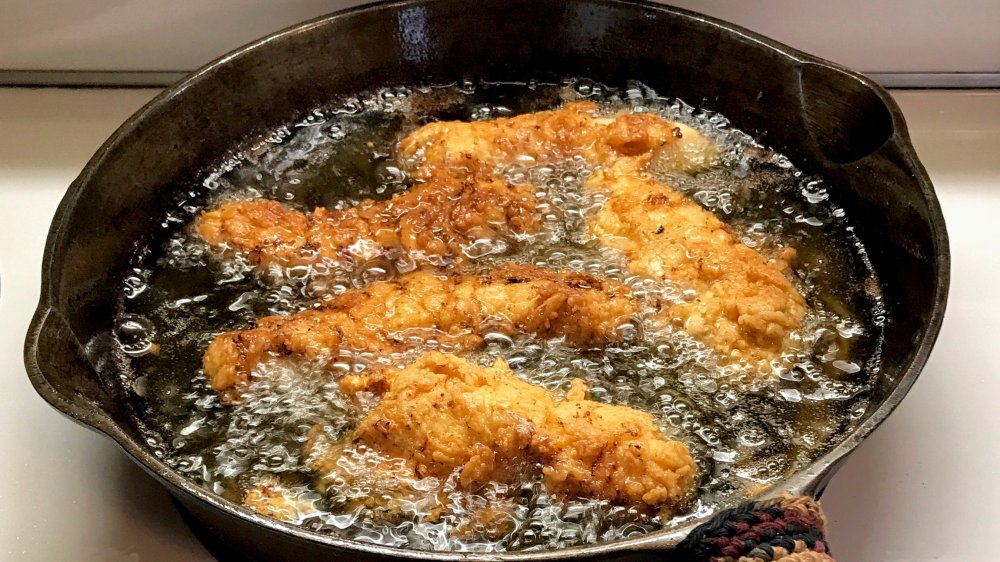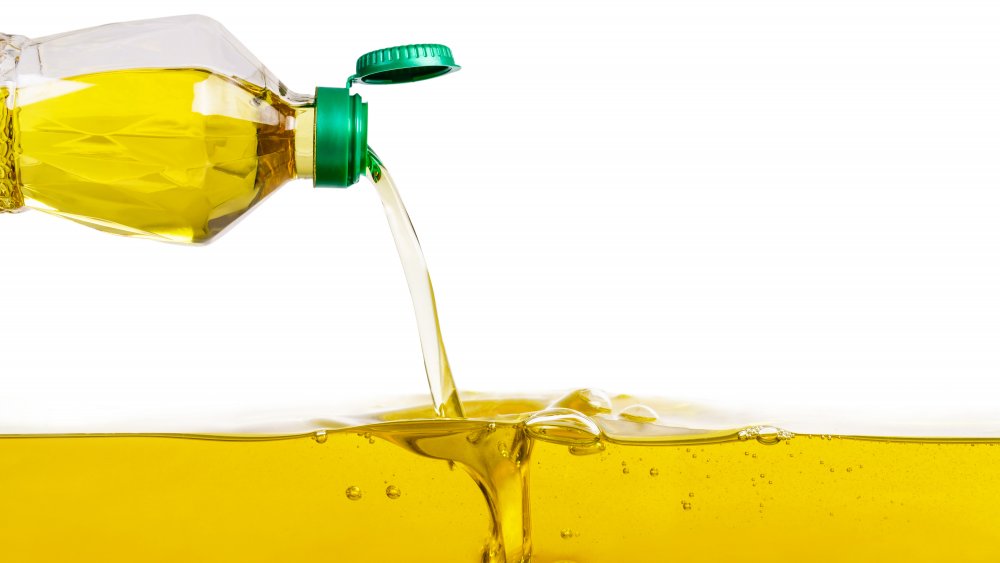The Real Difference Between Vegetable Oil And Canola Oil
Vegetable oil and canola oil are common ingredients in many recipes, and (according to Southern Living) the two are actually totally interchangeable. If you're frying a batch of catfish or chicken, either option will do the trick. Baking a chocolate cake? Southern Living says vegetable oil and canola oil are both neutral in flavor and will add the same moist texture to your baked goods. So if these oils can be swapped without any noticeable differences, why would you bother to choose one over the other?
Although there are many similarities between the two oils, there are also important differences — namely in the fat department. According to Allrecipes, canola oil comes from the canola plant, a crossbreed of the rapeseed plant. Canola oil is low in saturated fat, and a good source of monounsaturated fat. But vegetable oil must be healthier, since it has the word "vegetable" in it, right? Turns out, vegetable oil is just a term that can be used when referring to any plant-based oil, including canola. The vegetable oil labeled as "vegetable oil" in the store is usually made from corn or soybeans.
How to choose between vegetable oil and canola oil
The biggest difference between canola oil and vegetable oil is the difference in fats. When you compare labels side by side, you'll see the difference right away. We looked at oil brand Crisco as an example. According to the product page, one tablespoon of Crisco's pure canola oil has 14 grams of fat, of which 1 gram is saturated fat, 4 are polyunsaturated fats, and 9 are monounsaturated fats.
When we look at the product information for Crisco's pure vegetable (soybean) oil, we see that one tablespoon has the same 14 grams of fat, but the fat consists of 2 grams of saturated fat, 8 grams of polyunsaturated fat, and 3 grams of monounsaturated fats. The good news is, Harvard Health says that monounsaturated and polyunsaturated fats are both healthy. However, if you're trying to avoid saturated fat, you can cut it in half by choosing canola oil over vegetable next time you're frying chicken or baking brownies.

